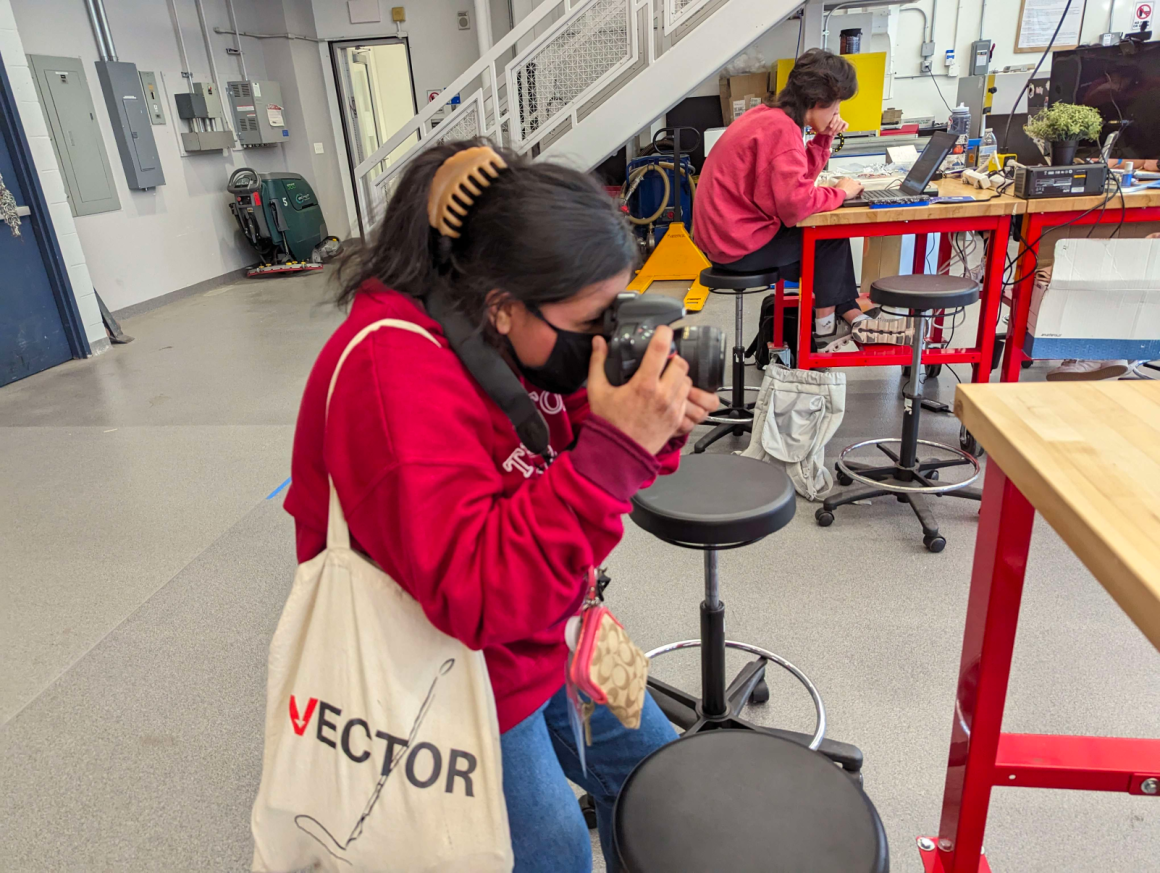I was part of my high school’s marching band — sort of.
During a football game, we all sit on the bleachers in our respective sections by instrument, and most of the band fills an entire bleacher section from top to bottom. You see all the flutes, hear all the saxophones, and feel all the drums in one area. Next to all those organized band students with their sheet music and shiny instruments, sits a row of five kids with a cowbell, maybe some tambourines, and a broken pair of cymbals.
That’s us — the front ensemble, also known as the pit. We took the ‘march’ out of ‘marching’ band. And that’s me — being a part, but not always fitting in.
Desired Becomes Undesirable

I’d been mostly unsure throughout high school about what I wanted to do as a career. I knew that I had worse scores in my English and history classes, but I really enjoyed math. In junior year, I had an amazing math teacher, and my plans were solidified to follow that path.
I applied to colleges mostly within my state. One was a technical institute that had an easy commute, and one was a bit farther from home but had majors available in what felt like all possible subjects. I ended up committing to the former as a mathematical sciences major.
My first year at New Jersey Institute of Technology (NJIT) mostly took place online, so I didn’t look too far when I was browsing organizations to join. I had been part of my high school newspaper all four years, so I decided to reach out to the college paper.

By my second year, I became so heavily involved in the newspaper that I became an editor. Our staff wasn’t as large as we’d like, so I wrote articles whenever I got the chance, putting some classes on the back burner. Soon, I’d never seen so many Bs and Cs in my math courses before — and I’m not talking about the variables. It progressed into worse outcomes the following semester, and I ended my sophomore year in the deepest of waters I ever treaded.
Doing the Expected
In some ways, I initially chose my major after a process of elimination. Math was the only option left that felt doable from the hovering STEM acronym, but two years into the attempt of pursuing that, it was clear something needed to change.
So, I shifted. It’s quite an experience to have someone ask, “So what do you study at the New Jersey Institute of Technology?” and my response being, “How people communicate with each other.”
That wasn’t my answer to most people until several months or even a year afterwards, though. I held on to the only connection I had with the STEM world. I was still scheduled to have at least one math class my junior year. My hope of being able to magically fall back into the math teacher route was still clouding my vision from being able to embrace the journalism enthusiast in myself.
My South Asian background also complicates the acceptance of my degree status and involvement on campus. I’ve rarely met or seen journalists that look like me outside of Indian news networks, and at any family or community gathering, I always get a “So you’re into computer science and engineering, too?”
It’s a running joke in brown communities that the most successful professions are doctors, lawyers, and engineers, and anyone trying to pursue something else — namely in the arts or humanities — is never going to be financially sound. The looks of confusion and sometimes disappointment on brown people’s faces when I tell them my major are involuntarily memorable to say the least.
Looking beyond the Expectations
But there’s still something so endearing about being part of a small group of people who exist beyond what the place might be advertised as. I adore the way people think and share their ideas in such a collaborative space that I never found in any of my math classes, and because the class sizes are so small, it becomes an intimate setting that you have no choice but to treasure.
Being part of the newspaper has had an impact on my college experience. While I ended up deep in the humanities track, most of the staff and fellow editors are still pursuing STEM degrees, which I admire so much. It’s fascinating to me how multi-talented these individuals are as they’re part of a newspaper at a technical school.
Brilliance of the Misfit Island
To say that I fully immersed myself in the world of marching band my four years in high school would be an understatement. Still, there was always this feeling of, “but can I really call myself a band kid?” that lingered with how separated from the band we were.
Nonetheless, being part of the pit invited so many niche and strange interests and activities, but I had people who were there for every moment we explored those. I was introduced to queerness and camaraderie in such a way that I’d never experienced before.
Even now, I have a picture of the five of us sitting on the bleacher bench next to everyone else. I remember when our band director saw us and said, “Aw, you guys look like the little misfit toys from the island in Rudolph the Red-Nosed Reindeer!”
NJIT is still my college; STEM is what people see on campus, but my fellow humanities-based peers are people I find to be the most spirited about their direction of study. We might be the misfits on an island for now, but isn’t it extraordinary to defy expectations and take them in stride?








You must be logged in to post a comment.